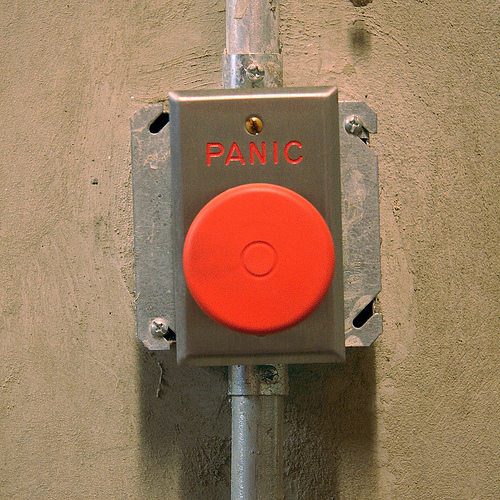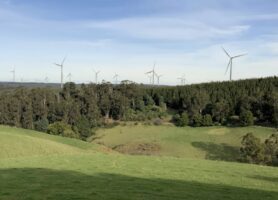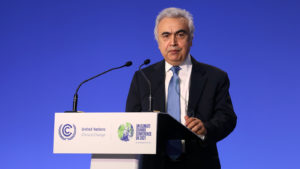In a seemingly desperate move the billionaire chairman of Adani has announced that early in November he met the new Australian Prime Minister, Malcolm Turnbull, and demanded legislation be passed to extinguish legal actions challenging the proposed Carmichael coal mine.
On Saturday, a little over a month after his meeting with Turnbull, Gautam Adani complained to journalists that legal challenges against the $15 billion mine, railway and port project had caused banks to refuse to finance the project.
“Ultimately, a decision lies with the politicians. They have to go to Parliament for enacting a special law which says that once government gives approval, no one can challenge it. That is what our request is to the Australian government. You come up with a special legislation which they have done in the past also,” Adani complained.
“Even though there is no stay, because of the judicial review, no lender will finance the project. They do not know what will be the outcome,” Adani told journalists, including the Indian business news website LiveMint.
Adani also bemoaned the dramatic slump in thermal coal process in the seaborne coal market. “In the meanwhile, coal prices have also slumped. We have to revive to the next cycle,” he said.
Adani’s loneliness on display
Adani’s comments, which reveal how isolated the company has become, are extraordinary for three reasons.
Firstly, the fact that Adani has chosen to go public just over a month after the November 4 meeting suggests that Turnbull didn’t immediately accede to Adani’s demand to extinguish the legal rights.
In other words, having failed with his behind-the-scenes lobbying, the company is now pinning its hopes on publicly pressing its case via comments to Indian journalists.
That Adani thinks his brazen demand is likely to play better when made public reveals just how out of touch the company is with the public mood.
Just as Adani’s demand of Turnbull is ham-fisted, his sense of timing is symptomatic of why the project is in deep, deep trouble. At a time of phenomenal smog problems in both New Delhi and Bejing – with coal burning being a significant contributing factor – Adani lets fly at Turnbull.
Nor does Adani seem to be aware that in the middle of the Paris climate talks, which have been buoyed by reports that greenhouse gas emissions might have declined this year and the phenomenal growth in renewables, it’s not a good time to be trying to hype one of the world’s largest proposed coal mines.
Adani‘s expectation of a favourable public reception to his public demand the Australian legal system be distorted to protect his proposed coal mine from legal scrutiny provides a telling insight into the company’s modus operandi.
In case his PR advisers haven’t spelt it out for him it, Adani’s deman was never going to play well: an Indian billionaire publicly dictating that he wants the Australian federal government to pass special legislation to extinguish the legal rights of Australian citizens so that his Indian-owned company can dig up the coal and export it to India in the hope that one day they can make a profit.
It’s not that the Australian Government is entirely unsympathetic, having already signalled that – at the behest of coal lobby groups – it wants to weaken the Environment Protection and Biodiversity Conservation Act. That move though seems destined to be rejected in the Senate.
As Jo Bragg from the Queensland Environmental Defenders Office wrote earlier this year the cases challenging Galilee Basin coal mines “have revealed flawed government assessments and independent evidence that the mining industry has used overestimated jobs figures in promoting its projects.”
That is what coal companies such as Adani fear. Coal company hype might work for state and federal governments but courts can be far more discerning.
Adani’s missive from his Indian headquarters also begs the question: if Adani wants Australian citizens stripped of legal rights today, what will he demand state and federal government’s do tomorrow?
Secondly, Adani’s comments confirm what analysts have been saying for ages: that the project is not financially viable.
While Adani acknowledges the “slump” in global coal prices, his suggestion that he wants the project approved so the company can “revive to the next cycle” implicitly confirms that it is not viable in the current “cycle.”
A recent report by the commodities analysts Platts noted that thermal coal from the Australian port of Newcastle – a benchmark price for the Pacific market – had slumped to US$50 per tonne, the lowest price in a decade. It also noted that the ‘forward price’ for thermal coal in 2021 is US$48 per tonne. Instead of complaining about environmental groups, Adani should be thankful they are saving him from losing a lot of shareholders money.
Adani’s comments also reveal he has yet to even acknowledge the possibility that thermal coal is in structural decline and that it is increasingly likely there will be no “next cycle.”
As the coal price keeps on falling, the chances of it ever being bankable – even without legal challenges – diminish by the day.
Adani’s public comments reek of a ‘last roll of the dice’ lobbying strategy which to most seasoned observers simply confirms the project is doomed.
Bob Burton is the Hobart-based Editor of CoalWire, a weekly bulletin on global coal industry developments. (You can sign up for it here.) Bob Burton’s Twitter feed is here.








